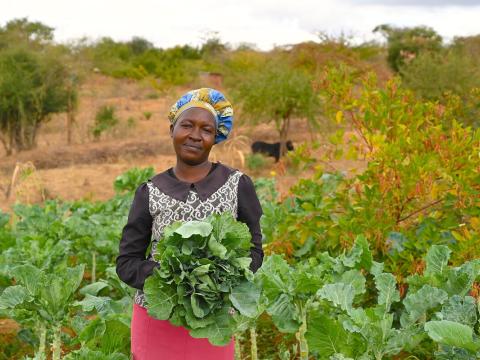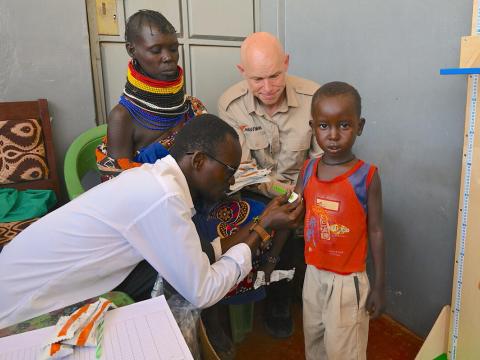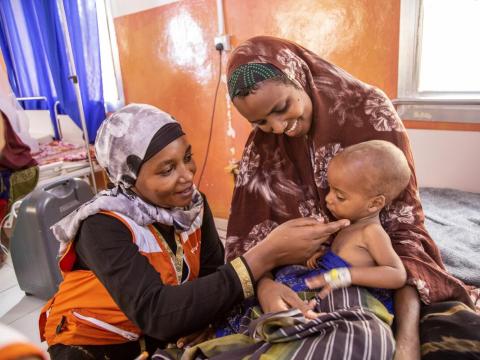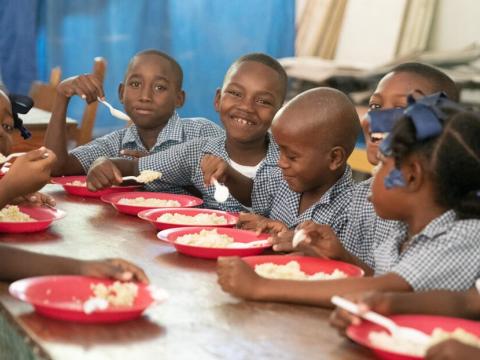
World leaders at G7 can stop the hunger crisis, so children can thrive
Within weeks of the global pandemic declaration in 2020, we knew that the combination of pandemic, conflict and climate change would have a devastating impact on the world's most vulnerable people. Now, even as the World Health Organization has formally withdrawn the COVID-19 emergency declaration, the actual impact is worse than we feared.
On hunger, the recently released "Global Report on Food Crises" confirms that acute food insecurity has increased for the fourth consecutive year. The report finds that about 258 million people in more than 58 countries face acute food insecurity in 2022, up from 193 million people in more than 53 countries in 2021. In fact, this number is the highest in the seven-year history of the report. Most concerning, more than 35 million children under the age of five suffer from acute malnutrition.
The international community must address this suffering, and leaders from some of the world’s most powerful countries have an opportunity to do so very soon. From the 19-21 May, leaders from seven of the world’s richest countries (Canada, France, Germany, Italy, Japan, the United Kingdom and the United States) will meet in Japan for the annual G7 Summit. The Hiroshima Summit is taking place at a pivotal moment for the world’s most vulnerable children and families.
Global hunger levels have been gradually increasing since 2015, the year that all the world’s governments pledged to end hunger by 2030 as part of their commitment to the UN Sustainable Development Goals. However, conflict, climate change, and the economic shock precipitated by the COVID-19 pandemic have caused sharp spikes in hunger and malnutrition. The war in Ukraine supercharged these trends, disrupting critical supply chains for the production and trade of global, regional, and national food supplies. As always, children are the most vulnerable in the face of such a crisis.
Specifically, World Vision calls on G7 leaders to:
1. Expand efforts to ensure food systems are resilient, sustainable, equitable, and support healthier diets through:
- Increase investments in the functioning of supply chains and markets.
- Ensure reliable supply of nutritious food; and
- Increase support to build smallholder farmers’ resilience to climate change.
2. Champion children’s need in responding to emergency food security and nutrition needs for the most vulnerable by:
- Sustained and expanded funding to save lives.
- Focus on increased investments in child nutrition, and proven interventions for the detection, referral and treatment of wasting;
- Scale-up investment in prevention, preparedness, and anticipatory action; and
- Support child-focused interventions that address the multiple life-saving needs of children in crises that include nutrition, health, clean water, and protection.
3. Contribute to reducing all forms of child malnutrition:
- Increased access to nutritious food year-round through greater investments in food system transformation and child-sensitive national social protection systems;
- Expand efforts to help reduce micronutrient deficiencies in children and women, including large-scale food fortification; and
- Seize the opportunity of Nutrition for Growth in France in 2024 to demonstrate the G7’s global leadership commitments on nutrition made at the 2021 Tokyo Summit.
Global food security has long been a priority for the G7. In 2015, G7 leaders pledged to lift 500 million people out of hunger and malnutrition by 2030 through its “Broader Food Security and Nutrition Approach”. This approach includes strengthening food systems, increasing support to smallholder farmers, improving nutrition, and increasing efforts to address food security and nutrition for those affected by climate-related disasters and conflict. By increasing efforts to work across the humanitarian, development, and peace nexus, the G7 reaffirmed these commitments in 2017, 2021 and 2022.
Decisions taken at the G7 Summit can and have had a huge impact on the world’s most vulnerable children and communities when they are followed up with real action. But, with its own 2022 Progress Report giving a failing grade on meeting its food security and nutrition commitments and an ever-growing hunger and nutrition crisis at risk of spinning out of control, we call on G7 Leaders to back up their verbal declarations with real action now, to stop this crisis in its tracks.
Chris Derksen-Hiebert is Senior Director of Public Policy for World Vision International. In this role, Chris provides overall strategic leadership to World Vision’s global public policy development and leads World Vision international engagement with the G7, G20 and the UN's Conference of Parties (COP) climate meetings.


